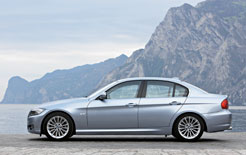
By Martin Brown, managing director, Fleet Alliance
For many business car managers, a vehicle’s monthly rental guides them in their leasing decisions.
This is quick and easy.
However, this snapshot isn’t an accurate method of assessing the true financial impact on the operation of the cars that the business runs. There is a better way. But it means that business car managers must concede that focusing on the up-front or rental cost of a vehicle is the wrong way forward.
Regardless of how you choose to fund the cars your business runs, there are a number of factors that should be considered before making a decision. These include:
- taxation;
- fuel economy; and
- CO2 emissions.
These three factors are all key to determining the whole life cost of operating your business cars.
Including the fuel element, for example, in your calculations is not only common sense. But it is also a good way of ensuring your business cars are environmentally efficient. Which also means they will be cost-effective to operate.
I believe that only once these elements are given attention, can you consider the cars your business runs to be financially sound.
But how do you do it?
By applying our simple whole life cost calculation, we can help you determine the actual cost of running your vehicles.
By adopting this method many of our clients have already made changes to the business cars they run. And are now enjoying both the environmental and financial rewards.
The Whole Life Cost pricing comparison
The illustration below shows the difference in whole life cost between a Volkswagen Passat and a BMW 318d when compared over a three-year/60,000 mile contract hire agreement.
The key thing to note is that the BMW has CO2 emissions below the 160g/km level – the critical new tax break under the recent changes to writing down allowances and the expensive car leasing disallowance:
|
VW Passat 4DR 2.0 |
BMW 318d 4DR SAL |
|
| CO2 g/km | 186 | 123 |
| Combined MPG | 35.8 | 60.1 |
| Monthly rental (inc. maintenance) | £439.51 | £452.05 |
| Total rental cost (inc. disallowable VAT) | £17,038.08 | £17,549.64 |
| Total fuel cost (based on combined MPG) | £6,502.81 | £4,322.82 |
| Insurance (£700 per annum) | £2,100.00 | £2,100.00 |
| National insurance | £2,059.68 | £1,699.68 |
| Lease rental restriction (as of April 2009) | £2,373.36 | £0 |
| Whole life cost | £30,073.93 | £25,672.14 |
This basic whole life cost calculation demonstrates that the Passat is more expensive over the lifetime of the contract than the 318d. Despite the Passat having a lower monthly rental.
This simple whole life cost calculation proves that the monthly contract hire rental is not always a realistic indicator of the car’s inherent value.
And that, by using whole life costs, it can save your company money on its business cars.
Further information
Fleet Alliance is a multi-divisional finance and fleet solutions provider. This includes a Fleet Division which provides finance for cars and vans to both businesses and individuals who have opted out of a firm’s company car scheme. For further information go to the Fleet Alliance website: www.fleetalliance.co.uk







